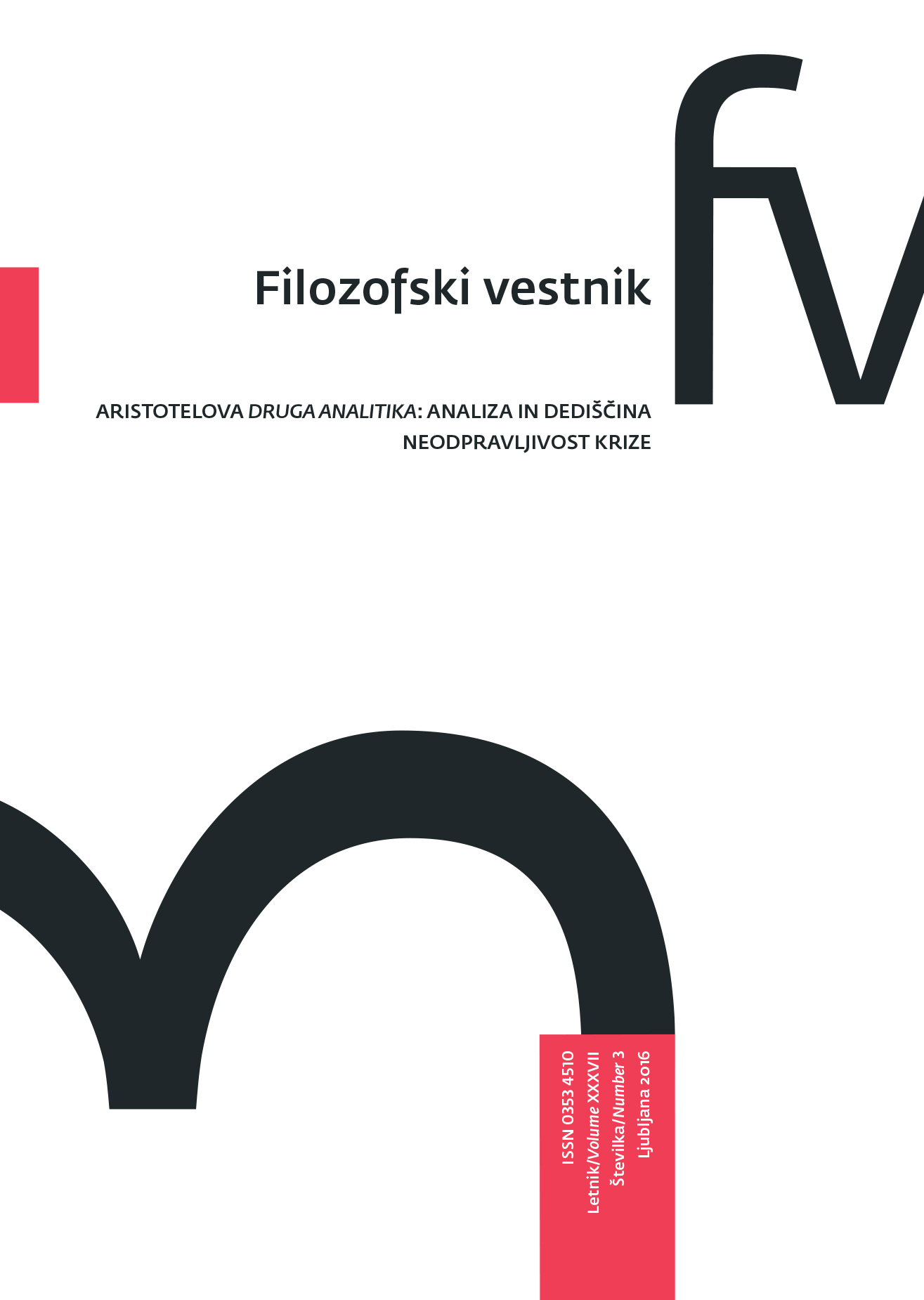Grosseteste’s Understanding of “Experiment” in Commentary on Aristotle’s Posterior Analytics
Keywords:
Grosseteste, Aristotle, Posterior analytics, experience, experiment, illumination, early modern scienceAbstract
In the work Robert Grosseteste and the Origins of Experimental Science 1100-1700, Alistair C. Crombie credits Grosseteste with influential advances in the methodology of science and experimental practice. Through Grosseteste’s works he wants to demonstrate that modern science derives from medieval science and that it is, through its methodological and philosophical inspiration, a medieval invention. Grosseteste’s Commentarius in Posteriorum Anayliticorum Libros, represents Grosseteste’s methodology of science (scientia), shows the role of mathematics in the natural sciences, and demonstrates his understanding of experience and experiment (experimentum). This paper focuses on the last point – on Grosseteste’s understanding of experiment. In oposition to Crombie, this paper attempts to demonstrate that Grosseteste’s understanding of experiment cannot be connected to the so-called controlled experiments of early modern science. In fact it is his experiential, experimental observations that are related to illumination or enlightenment.Downloads
Download data is not yet available.
Downloads
Published
2017-01-18
How to Cite
Kodelja, I. (2017). Grosseteste’s Understanding of “Experiment” in Commentary on Aristotle’s Posterior Analytics. Filozofski Vestnik, 37(3). Retrieved from https://ojs.zrc-sazu.si/filozofski-vestnik/article/view/4881
Issue
Section
Aristotle's Posterior Analytics: An Analysis and Heritage
License
Authors guarantee that the work is their own original creation and does not infringe any statutory or common-law copyright or any proprietary right of any third party. In case of claims by third parties, authors commit their self to defend the interests of the publisher, and shall cover any potential costs.
More in: Submission chapter





